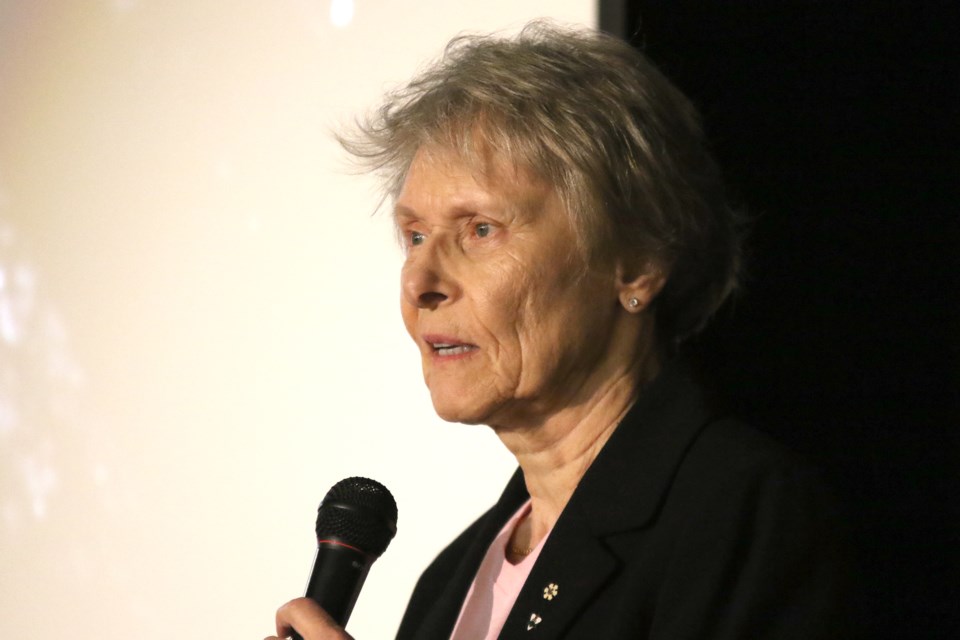THUNDER BAY – Roberta Bondar is 100 per cent behind the push to put men and women on Mars.
But it doesn’t have to happen overnight, said Canada’s first female astronaut, 25 years after she launched into space aboard the Space Shuttle Discovery in 1992.
“I think it’s important, eventually, but I think it’s important to take the proper steps to go to the moon first and try out technologies,” said the 71-year-old Bondar, after speaking to students at Westgate Collegiate and Vocational Institute for about an hour on Tuesday morning.
“We really do need to understand communications systems that are required and the medical systems that are required. It’s a long leap to Mars and I think ethically those of us who are in the space program try to make people as safe as possible.”
There’s plenty of value in trying to reach the Red Planet, she said.
Not everyone agrees.
This past April comedian Bill Maher devoted his New Rules segment of his HBO show Real Time with Bill Maher to bashing the idea of trying to put people on Mars.
“Stop fantasizing that Mars is Earth’s back-up planet,” Maher said of the recent push to colonize Earth’s sometimes closest cousin, while people continue to trash Earth thinking there’s a back-up planet in play.
Bondar, who did not see Maher’s rant, said Mars exploration has a lot to offer humanity.
“Mars is important,” she said. “It will teach us about our own planet. Of course there’s not really much to bring back from Mars except soil samples, so it’s very much about research.”
She’s less inclined to think humans will one day populate other planets, whether Mars or elsewhere in the universe, a goal of SpaceX founder Elon Musk, who figures people will be able to travel to a human-populated Mars in the near future – and plans to do it with private funds.
But she also doesn’t rule out the possibility.
“I suppose there’s always an interest in doing that, but I’m not sure in the long-term what technologies are needed to do that,” said Bondar, who told the gathering of high school students the sun is about halfway through its 10 billion-year life cycle.
“One thing’s for sure, human beings have always tried to step up to the plate with a huge challenge and a huge question; and by doing that we actually develop things for better Earth living here, for those of us who are not going to be going to Mars.”
The Sault Ste. Marie-born scientist likes what Musk and other entrepreneurs are bringing to space exploration.
Their model could be the future, said Bondar, whose trip to space lasted eight days.
“I’m glad a lot of it’s going to the private sector, because the private sector is able to pinpoint specific things it wants to do and drive for that, whereas the government has to really use taxpayer’s money really efficiently, and to be able to include a lot of different facilities in it,” she said.
“A lot of the money is spent spread around the country, just in terms of logistics and administration, whereas industry is not hobbled by that as much.”
The former astronaut concluded her talk issuing the Bondar Challenge to students, encouraging them to take a photo of something that inspires them in the natural world, describe it and submit it to the contest.
